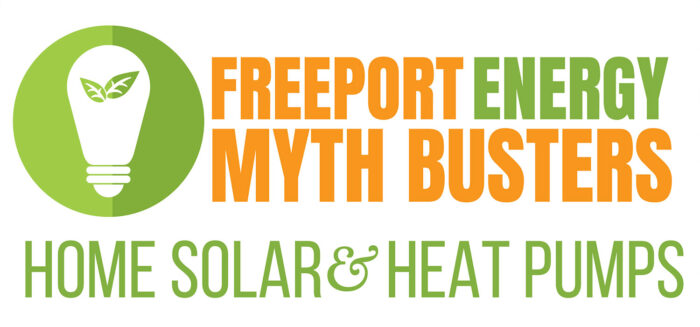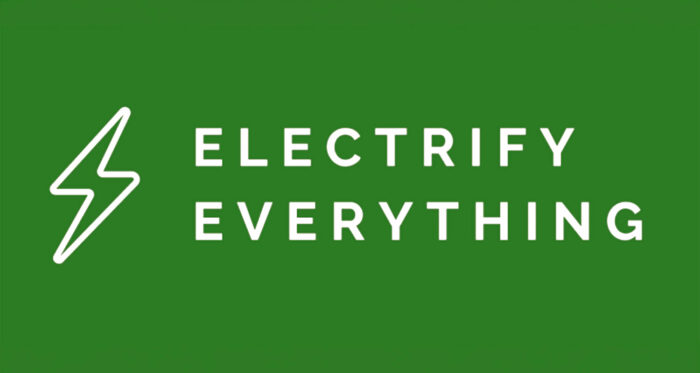FreeportCAN Action Group:
Solar & Buildings
The use of fossil fuels for generating electricity and heating and cooling buildings produces the majority of greenhouse gas emissions in Freeport. Transitioning our energy needs away from fossil fuels to renewable energy sources is key to reducing our contribution to climate change.
Impact
Maine has the oldest housing stock in the country. 60% of Mainers use oil and natural gas to heat our homes. And because 72% of our electricity is generated by renewable sources (with a goal of 100% by 2050), switching to electric heat pumps, solar and weatherization is a priority.
The Solar Energy and Buildings Action Group promotes ways for Freeport residents and businesses to meet their energy needs while lowering the level of harmful emissions by:
• Acquiring their electricity from non-fossil fuel sources
• Promoting window sealing, installation of insulation, pipe wrapping to minimize heating requirements and the use of heat pumps to reduce the use of oil and gas.
Financial support is available to help you heat, cool, insulate, and power your home, and switch to energy efficient appliances. You can often cut carbon while saving money on bills and being more comfortable at the same time.
What you can do
Get an assessment, and make recommended upgrades.
Once you have your assessment report, take the recommended actions made by your auditor to reduce the amount of energy you need to heat and cool your home, improve air quality, make your home more comfortable, and save on your energy bills.
Recommendations may include insulation, weather stripping, whole house fresh air system, whole house air filtration or purification systems, and energy-saving retrofits. The Inflation Reduction Act (IRA) creates tax credits and rebates to directly help reduce your costs for these upgrades.
Whether you install your own panels or subscribe to Community Solar, you can use the energy constantly produced by the sun to power your home.
Solar panels:
Solar panels can be mounted on a roof or on the ground to produce electricity. Panels are connected to the electric grid, so the supply coming into your home is not disrupted when the sun is not shining. Solar energy cannot be stored for later use unless you install a battery. There is even a newer technology that can reroof your entire house in solar shingles!
Contact a solar contractor to assess if your property is right for solar panels. Contractors will help you lease or buy a system and can help you understand when you should expect to pay off your system from the savings you receive.
Community solar:
Community solar, also known as Net Energy Billing (NEB), is designed to promote the expansion of solar production in Maine. Utility customers can sign up with the owner of a solar project to receive a share of the energy generated by the project.
An electric hot water heater is a great alternative to a gas water heater because the more you optimize energy efficiency in your home, the more money you’ll be saving on energy bills (and carbon emissions)!
Join Us!
Act local and drive climate action now!
Only with a true community-wide effort will we meet our climate action goals.
If you have experience or interest in this area, we hope you will join a group of fellow activists in efforts to inspire action that is commensurate with the scale and urgency of the problem.
How We're taking action
Freeport Energy Myth Buster Event
Learn from the experts and homeowners who have experience with these s
FCAN Office
08 March, 2024Why Pine Tree Power? A Conversation with Economist Richard Silkman, PhD
FreeportCAN Supports a Yes On Pine-Tree Power Ammendment, Question #3
FCAN Office
01 October, 2023Electrify Everything!
Energy Efficiency Rebate Program Launches! FreeportCAN has worked with
FCAN Office
11 August, 2023





